Children of Sadr City
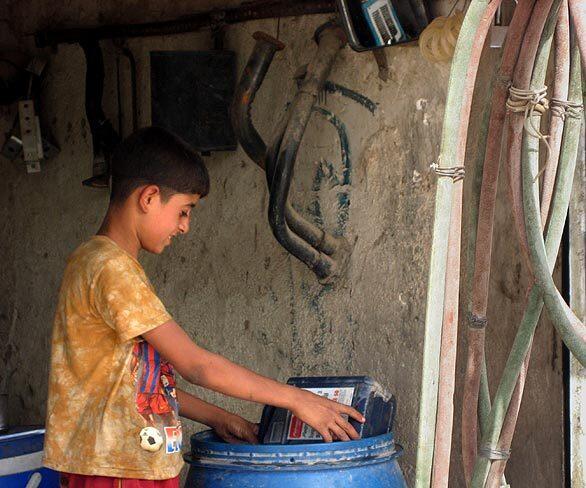
Karrar Raad, 12, works in a muffler shop in Sadr City. His brother Allawi, who is only 10, works in the adjacent garage. The owner offered them work, paying about $3 a day, after he saw them scavenging for cans a dangerous living in bomb-prone Baghdad. Their father is ill and has no job, so the two are the breadwinners for a family of 10. (Raheem Salman / Los Angeles Times)
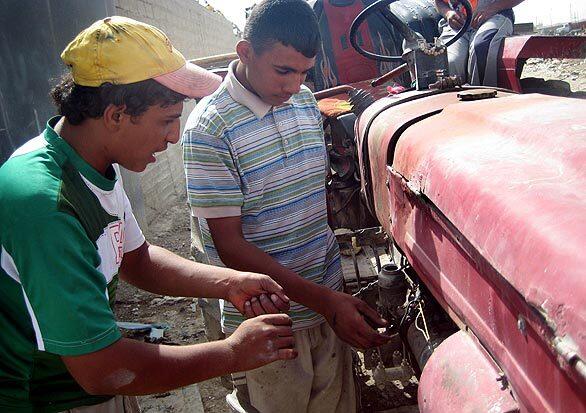
Ali Kadhim Baidani, right, tries to fix his tractor with the help of an unidentified friend. With his father unable to work, Ali uses the tractor to collect garbage for a local contractor, starting at 5 a.m. each morning until 2 in the afternoon. “The happiest moment for me, he said, is when I receive money from the contractor and give it to my father to spend on my family.” (Raheem Salman / Los Angeles Times)
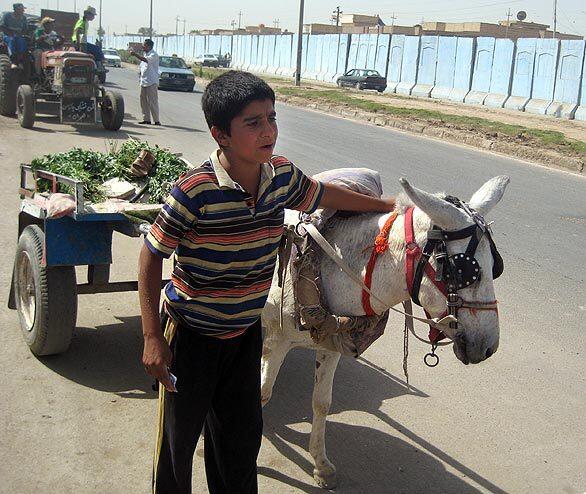
Sajjad Hassan Saadi, 12, quit school in the 4th grade to earn a living selling government rationed flour diverted to the black market. It’s illegal but unremarked upon in Iraq. He can earn $8 to $12 a day, but on a recent afternoon, he had no money in his pockets. He fears he has no future unlike other children who go to school. (Raheem Salman / Los Angeles Times)
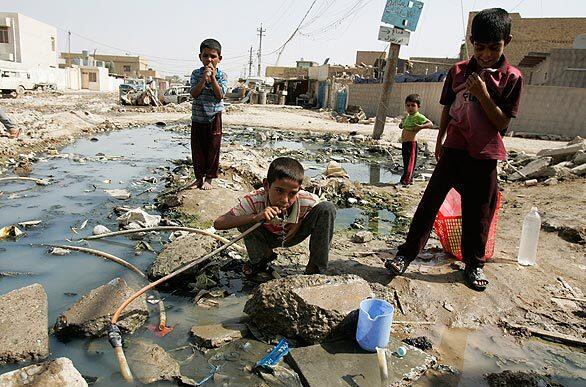
An Iraqi boy drinks from a broken pipe in Sadr City. A United Nations report found that 94% of boys in Iraq attend elementary school, but that number drops to 44% by high school. For girls, 81% start elementary school; 31% go on to attend high school. (Karim Kadim / Associated Press)
Advertisement
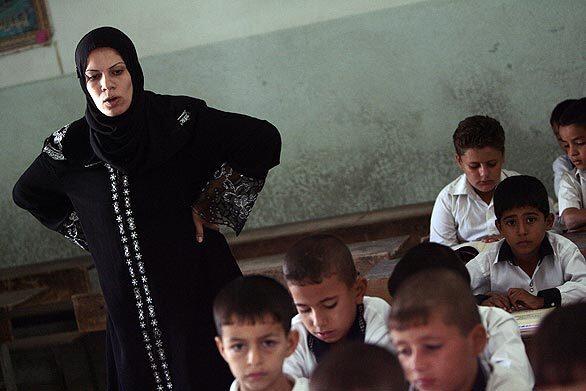
An teacher leads a class on the first day of school at Al Rasafi elementary in Sadr City after the end of the Islamic holy month of
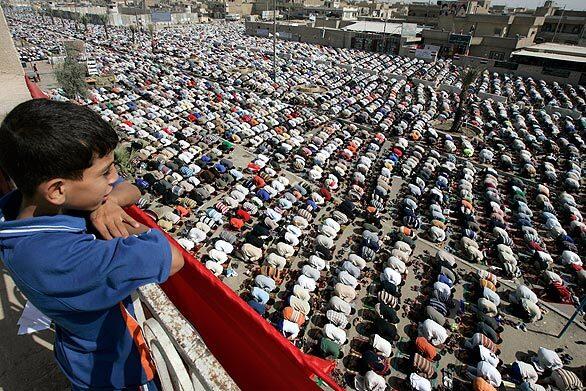
A young boy watches worshipers during Friday prayers in Sadr City. Children in the poor walled-in Shiite Muslim neighborhood have been shaped by war and poverty. They are witnesses to sectarian violence, Shiite militias, angry sermons and troops patrolling. (Karim Kadim / Associated Press)







